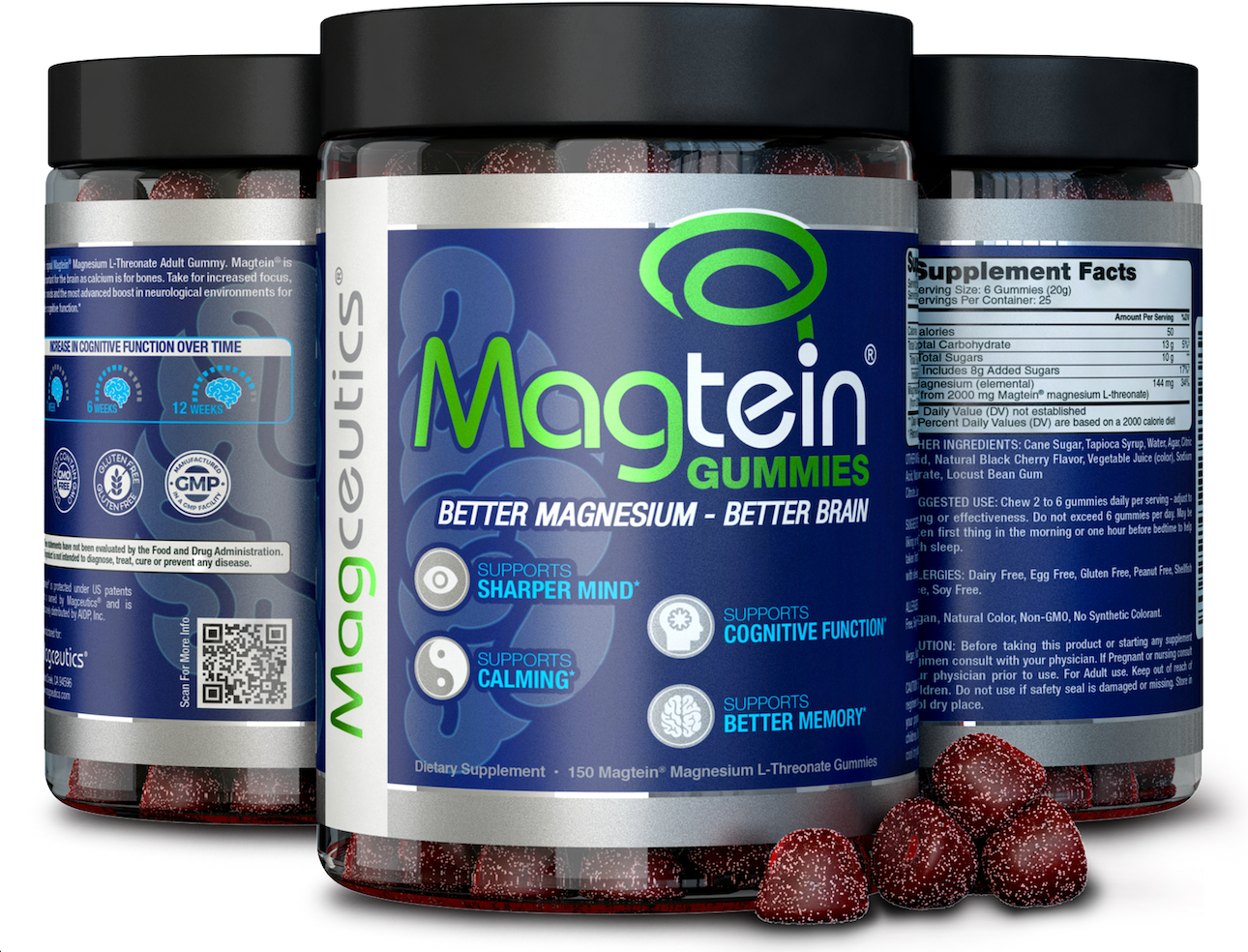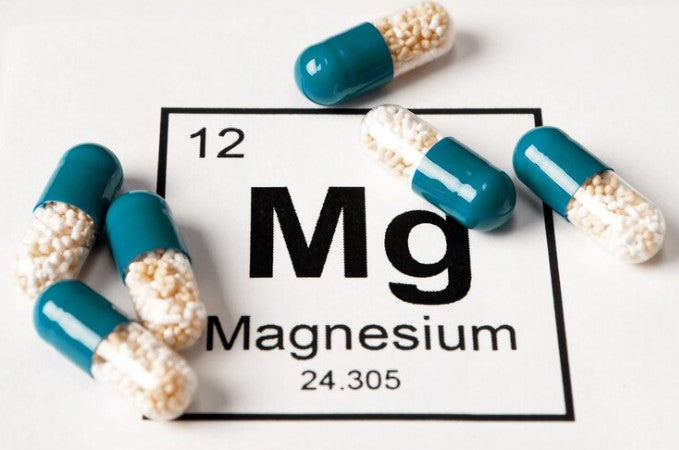
What Is the Best Form of Iron Supplement?
Here's a frustrating reality: You could be taking an iron supplement every day and still be iron-deficient. Iron deficiency is one of the most common nutritional deficiencies worldwide, yet countless people dutifully swallow their daily iron pills only to see barely any increase in their energy levels or lab results.
The problem? Most people are taking iron supplements that their bodies can barely absorb. Traditional iron forms often pass right through your digestive system, leaving you with stomach upset and little benefit. The solution is to take a supplement that your body can actually break down and use.
The best iron supplement choice depends entirely on bioavailability (how well your body can actually access and use the iron you're taking). The highest milligram count means nothing if your digestive system treats it like an unwelcome visitor that needs to be expelled as quickly as possible. Let’s take a look at your options.
Why Choosing the Best Iron Supplement Matters
Iron plays essential roles throughout your body that go far beyond just preventing anemia. This vital mineral supports:
- Energy production at the cellular level through oxygen transport
- Cognitive function and mental clarity
- Immune system strength and overall resilience
- Healthy pregnancy and fetal development
- Physical performance and exercise capacity
When you're iron-deficient, these systems can't function optimally, leading to fatigue, brain fog, weakened immunity, and reduced quality of life. However, the challenge with iron supplementation is that many traditional forms are poorly absorbed and can cause significant digestive upset.
The best iron supplements address both sides of this equation: they provide iron in a form your body can readily absorb while minimizing the stomach irritation that makes many people abandon their supplementation efforts. This balance between effectiveness and tolerability is what separates truly superior iron supplements from the rest.
Different Forms of Iron Supplements and How They Compare
There are a few different forms of iron, and understanding the different types of supplements will help you make an informed choice about which might work best for your needs.
Koji-Fermented Iron
This is a newer approach that uses an ancient fermentation process to create a highly bioavailable, gentle form of iron.
Pros:
- Exceptional bioavailability through the fermentation process
- Significantly gentler on the digestive system
- Can be taken with or without food
- Enhanced with complementary nutrients for optimal absorption
Cons:
- Generally, more expensive than traditional forms
- Less widely available than conventional options
Ferrous Sulfate
The most commonly prescribed iron supplement, ferrous sulfate, is inexpensive and widely available.
Pros:
- High elemental iron content (about 20% iron by weight)
- Extensively studied and proven effective for treating deficiency
- Readily available and affordable
Cons:
- Notorious for causing digestive upset, including nausea, constipation, and stomach pain
- Must be taken on an empty stomach for best absorption, which increases side effects
- Can interact with many foods and medications
Ferrous Gluconate
A gentler alternative to ferrous sulfate, ferrous gluconate contains less elemental iron but may be better tolerated.
Pros:
- Generally causes fewer digestive side effects than ferrous sulfate
- Can often be taken with food
- Good bioavailability when properly absorbed
Cons:
- Lower iron content means larger or more frequent doses may be needed
- It can still cause stomach upset in sensitive individuals
- Absorption can be inconsistent
Ferrous Fumarate
This form provides a middle ground between iron content and tolerability.
Pros:
- Higher iron content than gluconate
- Moderately well-absorbed
- Less expensive than newer formulations
Cons:
- It can still cause digestive discomfort
- Absorption is affected by food and other supplements
- May require careful timing with meals and medications
What Is the Best Iron Supplement for Anemia?
The best iron supplement for anemia is one that can effectively raise iron levels while being tolerable enough for consistent, long-term use. Many people start iron supplementation with good intentions but stop due to the upsetting digestive side effects, never giving iron levels a chance to improve.
Research shows that absorption rates vary dramatically between different iron forms. Traditional iron salts like ferrous sulfate are absorbed at rates of 10-15% under ideal conditions, but real-world absorption is often much lower due to dietary interactions and individual digestive differences.
The key factors for anemia treatment include:
- Consistent absorption regardless of food intake
- Minimal side effects to ensure compliance
- Adequate dosing to meet therapeutic needs
- Supporting nutrients that enhance iron utilization
For people with anemia, the best iron supplement form combines effectiveness with real-world usability. This means choosing a form that not only contains sufficient iron but delivers it in a way that your body can consistently access and use.
The Best Form of Iron Supplement for Gentle Absorption
Digestive sensitivity is the primary reason people discontinue iron supplementation. Traditional iron salts can cause oxidative stress in the digestive tract, leading to inflammation, nausea, constipation, and stomach pain. This creates a frustrating cycle where the people who most need iron supplementation are least able to tolerate it.
Through improved bioavailability and reduced reactivity, Koji-fermented iron offers the perfect solution. When iron is more readily absorbed, lower doses can be effective, which means less potential for digestive irritation.
Advanced formulations also consider the supporting nutrients that enhance iron absorption and utilization:
- Vitamin C dramatically improves iron absorption and helps convert iron to its most usable form
- Folate works synergistically with iron for healthy red blood cell formation
- Vitamin D3 supports overall nutrient absorption and immune function
Timing flexibility is another consideration. Being able to take iron with food, rather than on an empty stomach, can significantly reduce side effects while maintaining absorption efficiency.
Koji-Fermented Iron Plus: A Next-Generation Option
Koji fermentation is an ancient process that uses Aspergillus oryzae, and it’s truly a breakthrough approach to iron supplementation. This traditional Japanese fermentation technique creates iron compounds that are fundamentally different from synthetic iron salts.
Magceutics' Koji Fermented Iron Plus utilizes this time-tested process to deliver iron that's both highly bioavailable and remarkably gentle on the digestive system.
Enhanced Absorption at the Cellular Level
You might be wondering how fermentation helps with the absorption of iron. Here’s how it works. The fermentation process pre-digests the iron, creating chelated compounds that your body recognizes as food rather than synthetic supplements. This means better absorption rates and more efficient iron utilization at the cellular level.
Comprehensive Nutrient Support
Rather than iron alone, this advanced formula includes folate, vitamin C, and D3—nutrients that work together to optimize iron absorption and support overall health. This synergistic approach means you're not just getting iron; you're getting comprehensive blood health support.
Gentle on the Stomach
The fermentation process significantly reduces the oxidative stress that traditional iron supplements create in your digestive tract. This means you can take your iron supplement consistently without the discomfort that often derails supplementation efforts.
Ideal Maintenance Dosing
With 18mg of highly bioavailable iron per serving, this formulation provides therapeutic levels without excessive dosing. The enhanced absorption means this moderate amount can be as effective as much higher doses of conventional iron supplements.
How to Choose the Best Iron Supplement for Your Needs
Choosing the right iron supplement is a matter of considering your individual circumstances, sensitivity levels, and your overall health goals.
Assess Your Iron Status
Before starting any iron supplement, it’s helpful to know your current iron levels through proper testing. This includes not just hemoglobin, but also ferritin, transferrin saturation, and total iron-binding capacity for a complete picture.
Consider Your Digestive Sensitivity
If you've tried iron supplements before and experienced stomach upset, prioritize forms known for gentleness. Fermented iron options typically offer the best combination of effectiveness and tolerability.
Evaluate Supporting Nutrients
Sometimes you may want an iron pill that includes complementary nutrients that enhance absorption and utilization. Look for formulations that include vitamin C, folate, and other synergistic compounds.
Think About Consistency
The most effective iron supplement is the one you'll actually take consistently. If a particular form causes side effects that make you skip doses, it's not the right choice regardless of its theoretical benefits.
Quality and Testing
Choose supplements from reputable companies that provide third-party testing for purity and potency. After all, they’re useless if the product doesn't contain what's listed on the label.
Ready to Support Your Iron Levels?
Finding the best iron supplement for your needs doesn't have to involve trial and error with multiple products that cause digestive discomfort. Advanced formulations like Koji Fermented Iron Plus offer a science-backed approach that prioritizes both effectiveness and tolerability.
Whether you're addressing diagnosed iron deficiency, supporting increased iron needs during pregnancy, or maintaining optimal iron levels as part of your wellness routine, choosing a high-quality, well-absorbed iron supplement makes all the difference in your results and experience.
Explore our complete supplement collection to see how targeted nutrition can support your health goals, and read what our customers are saying about their experiences on our testimonials page.
Frequently Asked Questions About Iron Supplements
What is the best iron supplement for sensitive stomachs?
Fermented iron supplements are typically the best iron supplement choice for people with sensitive digestive systems. The fermentation process creates iron compounds that are gentler on the stomach while maintaining excellent bioavailability. Koji-fermented iron, in particular, can often be taken with food without affecting absorption, which further reduces the likelihood of digestive upset. Traditional iron salts like ferrous sulfate are more likely to cause nausea, constipation, and stomach pain, especially when taken on an empty stomach as typically recommended.
Can you take iron every day?
Yes, iron supplements can generally be taken daily when needed to address deficiency or increased iron requirements. However, the best iron supplements for daily use are those that provide appropriate dosing without excess. Taking more iron than your body needs can lead to iron overload over time. Daily iron supplementation is commonly recommended for people with diagnosed iron deficiency, pregnant women, and others with increased iron needs as determined by proper testing.
What's the difference between iron supplements and dietary iron?
Iron from food comes in two forms: heme iron from animal sources and non-heme iron from plant sources. Heme iron is generally better absorbed (15-35% absorption rate) than non-heme iron (2-20% absorption rate). Iron supplements typically contain non-heme iron, but the best form of iron supplement uses processing techniques like fermentation to improve bioavailability significantly. Supplements also allow for precise dosing and can include supporting nutrients like vitamin C that enhance absorption. While dietary iron should always be the foundation, supplements provide a reliable way to address deficiency when food sources aren't sufficient.


